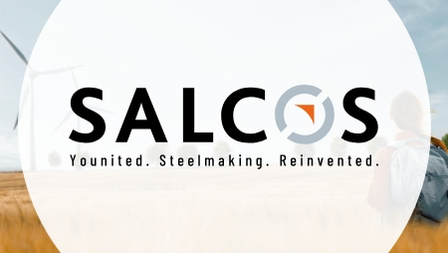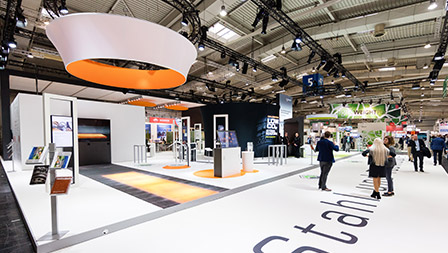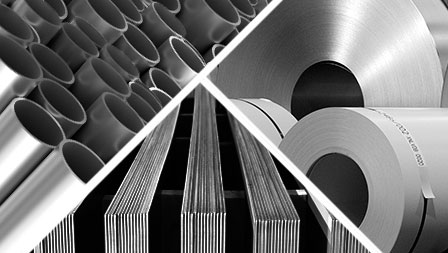Pipeline across the Baltic Sea: Nord Stream and EUROPIPE sign 1 billion Euro contract
08.11.2007 | Salzgitter AG
Pipeline across the Baltic Sea: Nord Stream and EUROPIPE sign 1 billion Euro contract
Nord Stream AG (Zug) and EUROPIPE GmbH (Mülheim) today signed a contract for the supply of steel pipes for the construction of the pipeline across the Baltic Sea. EUROPIPE will supply 75 per cent of the pipes for the first 1,200 kilometres gas pipeline from Vyborg in Russia to Lubmin in Germany. Russian pipe company OMK (Vyksa) has been awarded a contract on 6 November 2007 for 25 per cent of the total.
The order won by EUROPIPE is for 860,000 tonnes of high quality steel pipes at a total cost to Nord Stream AG of more than 1 billion Euros. The contract for pipe supplies up to the beginning of 2010 secures pipes for the first Nord Stream pipeline to ensure security for its supplies.
Result of a world-wide call for tender
The world-wide call for tender for the supply of pipes was made at the end of November 2006 after Nord Stream and its shareholders had conducted an international study to identify potential suppliers. As a result, six manufacturers in Germany, Russia and Japan were invited to bid. Companies participating had to demonstrate that they were capable of supplying the volume required of large-diameter, high-pressure-proof steel pipes for offshore use that meet international quality standards. Four companies qualified. After evaluation of all offers, Nord Stream allocated three-quarters of the order volume to German manufacturer, EUROPIPE, and one quarter to OMK of Russia. Both companies are DNV (Det Norske Veritas)-certified manufacturers and have the capacity to manufacture and supply the pipes ordered in the period up to the beginning of 2010. Technical, commercial and capacity-related criteria determined the split between suppliers.
A new pipe supply tender will be held for the second pipeline, by which the number of technically qualified pipe mills is expected to have increased.
Important project step
The award of contracts is an important step to ensuring the first pipeline is completed and installed on schedule in 2010. One third of the pipes to be laid, i.e. more than 400 kilometres, will have to be available at various logistics sites when construction starts in 2009. By then, the entire production chain will have to be in place; from steel production, plate and pipe production, through to the transport facilities to coating and marshalling yards required for offshore installation.
Basis for extensive follow-up orders
After this significant step, Nord Stream will place further comprehensive orders for offshore work. The bid process for concrete coating and logistics will be completed at the end of 2007, and that order will lead to short-term investments worth tens of millions of Euros in machinery and infrastructure equipment, which will mean, in turn, further employment benefits for work on infrastructure improvement. Such work could, for example, create 200 jobs at the port of Sassnitz/Mukran, on the German island of Rügen, which has been proposed as a possible logistics site. For the pipe lay barges a Letter of Intent is already signed with Saipem (UK). A detailed contract is expected to be finalised by February 2008.
Budgetary planning
As soon as these major contracts have been signed, Nord Stream will be able to use the prices contained in the bids received for the supply of pipes and the provision of logistics services and installation capacity as a real costing basis for a detailed project budget for the 1,200 kilometre pipeline. At the moment, Nord Stream calculates a project budget of at least 5 billion Euros. A long-term cost comparison shows the economic benefits of laying the pipeline across the Baltic Sea rather than onshore. Total costs for Nord Stream, including operating costs for a period of 25 years, are estimated to be around 15 per cent below those for an equivalent onshore pipeline with the same transport capacity. The saving is mainly due to the compressor stations needed for an onshore pipeline which contribute to comparatively high operating costs.
The shareholders will inject equity into Nord Stream AG as required by the estimated project budget. This has been recorded in the Commercial Register. In October 2007, the equity was increased about 257 Million Swiss Franc. Further equity increases will be undertaken as required by the project development thus ensuring that Nord Stream has the necessary capital to meet its cash flow commitments.
EUROPIPE’S largest ever single order
The order for 860,000 tonnes of large-diameter pipes is the biggest in EUROPIPE’s company history on a value basis. The order includes the manufacture, insulation and transport of the pipes.
EUROPIPE will produce all 860,000 tonnes at its Mülheim steel plant. To meet the order, EUROPIPE will order the steel plate needed from its shareholders, Dillinger Steel Works and Mannesmann Salzgitter. The total order and agreed delivery deadlines will occupy more than 40 per cent of the company‘s capacity for a period of 18 months. The internal coating and the external anti-corrosion coating will be supplied by EUROPIPE’s subsidiary MÜLHEIM PIPECOATINGS (MPC) GmbH, taking up 60 per cent of its capacity. The order will mean work for about 800 employees in Mülheim at EUROPIPE and MPC.
Logistical challenge
For Deutsche Bahn, too, as a service provider to EUROPIPE, the pipe order represents a major challenge. The German railway company will be responsible for transporting the pipes from Mülheim to the proposed logistics centre at Sassnitz/Mukran on Rügen as well as to Bremen for onward shipping by sea. The installation process will involve the deployment of 380 special freight cars operating a shuttle service.
Notes for editors:
Nord Stream is a natural gas pipeline that will link Russia and the European Union via the Baltic Sea. Gas import of the European Union, 336 billion cubic metres in 2005, is projected to grow by 200 billion cubic metres to 536 per year in 2015 (Source: Global Insight, 2007). Connecting the world’s biggest gas reserves with the European gas pipeline network, Nord Stream will meet about 25 per cent of that additional requirement. The project will be an important contribution to long-term security of supply and the energy partnership between the European Union and Russia.
Nord Stream AG plans to have the first of two parallel pipelines, approx. 1,200 kilometres long, each with a transport capacity of some 27.5 billion cubic metres per annum, operational in 2010. In the second phase, capacity should double to about 55 billion cubic metres a year.
Nord Stream AG is an international joint venture established for the planning, construction and subsequent operation of the new offshore gas pipeline. Gazprom holds a 51 per cent stake in the joint venture. Wintershall and E.ON Ruhrgas hold 24.5 per cent each.
EUROPIPE was founded in 1991 by the Dillinger Hütte and Salzgitter Mannesmann groups. The global leader in the production of large welded pipes has production locations in Germany, France, Brasil and the USA. The company has a permanent staff of around 1,400 people.
Det Norske Veritas (DNV) is an Oslo-based independent foundation established in 1864 with the objective of safeguarding life, property, and the environment. It identifies, assesses, and advises on the management of risk in the maritime industry, energy and transportation. DNV has a dedicated research department that has enhanced and developed services, rules and industry standards. Many of the technology solutions developed have been so precise that they have helped define internationally recognized standards.
For more information please visit: www.nord-stream.com.
For further information please contact:
Jens Müller, mobile: +41 79 295 96 08
Irina Vasilyeva, mobile: +7 916 133 87 81
E-mail: press@nord-stream.com















